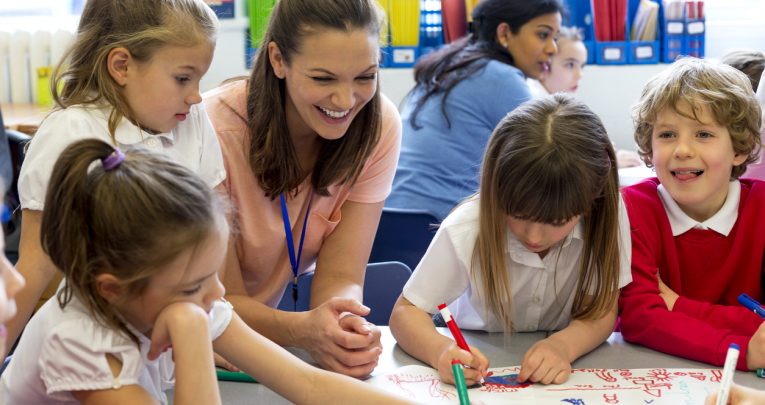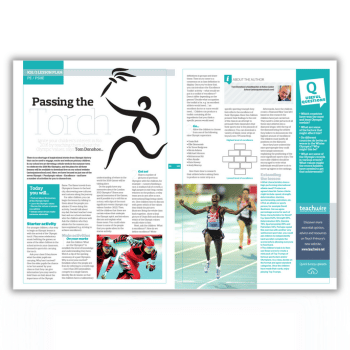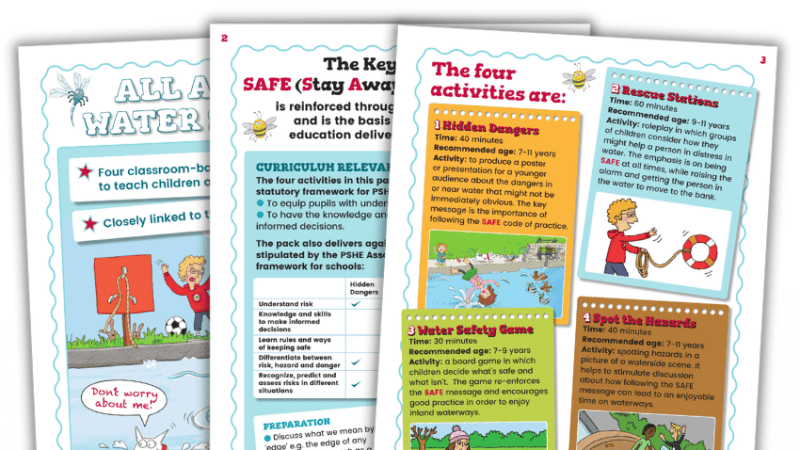Why are SATs Results Taken as a Greater Measure of Progress than Emotional and Social Development?

Progress takes many forms, but sadly there's only one that is looked at seriously, and this puts many schools at a disadvantage, says The Fake Headteacher…

The first school I worked in was a two-form entry junior school. Nearly all mums and dads attended parents’ evenings and regularly read with their children. They took an active role with homework and supported the teachers positively.
The children were mostly emotionally literate and able to work and socialise with each other well. It was an oversubscribed school. As a result, it could afford to pay for extra teaching assistants.
Due to lack of sleep (I had a newborn baby) I played it safe when Ofsted came to call, bumbling my way through a maths lesson that I knew all the children could do. My pupils behaved impeccably as usual.
I was expecting the inspector to rip the lesson apart. When I went for my feedback, I was surprised when he said it was one of the best lessons he’d seen.
He said, “You had the children eating out of the palm of your hand. Your classroom management was wonderful and the atmosphere was very positive. The children loved the work and you have a fantastic relationship with them. It was outstanding.”
It wasn’t a good lesson – let alone an outstanding one, but because our Y6 results had been good for several years, the school got graded ‘good’ with many outstanding features.
For family reasons, I decided to move to a school much closer to home. I found one I really liked – a one form entry primary.
I thought the headteacher was fantastic and very honest about the children. “Most classes have a high number of social and emotional needs,” she informed me.
“A lot of parents don’t help with homework and rarely listen to their children read. Several children often need restraining. Drug and alcohol use is becoming an issue with some families.”
She continued, “The children struggle to socialise positively despite the many social programs and whole school initiatives that we’re running. Due to financial reasons, we can’t afford as many teaching assistants as we’d like, but you’ll get one three times a week for two hours.”
I accepted the challenge and was offered the job.
My first term there was a real eye-opener. I spent many evenings working very late into the night trying to plan lessons that would support the many needs of the class.
It was incredibly hard but extremely rewarding. The staff there were amazing.
Eventually, after lots of work, Max stopped throwing chairs. Ryan and Abbie learnt not to shout at each other. Only a handful of children now fell out at lunchtime.
No longer did pupils say, “I can’t do it – I’m so rubbish.” Jack and Leo developed strategies so they could stay in their seats rather than hiding under the table. Jessica didn’t throw pencil pots any more.
Due to the hard work of staff and my efforts to adapt to the daily needs of the class, they all began to make excellent progress, socially and emotionally.
After a while they seemed like a different class. Yes, we had a long way to go and some days were not great, but on the whole, the children were progressing.
When Ofsted paid us a visit the inspector said, “You didn’t stretch the more able. The less able were too reliant on concrete approaches. Children called out rather than putting up their hand. It was a little noisy at times and their handwriting was poor.”
I felt so disappointed. How could she not understand? The fact that they had even done some work – and felt proud of it – was massive progress.
Y6 SATs results at this school were never particularly good, but the head’s priorities were very different to those of my first school’s. We were given a ‘requires improvement’ grading and morale slumped.
Staff left or had breakdowns due to the excessive workload that followed. It was a shame Ofsted didn’t see the important steps being made. Progress takes many forms.
Sadly, it seems, progress in the form of end-of-Key-Stage results is the only one that is looked at seriously and this puts many schools at a disadvantage.
The Fake Headteacher has taught in five schools across a 20 year career. Find them at headteacher-newsletter.com and follow them on Twitter at @fakeheadteacher.












